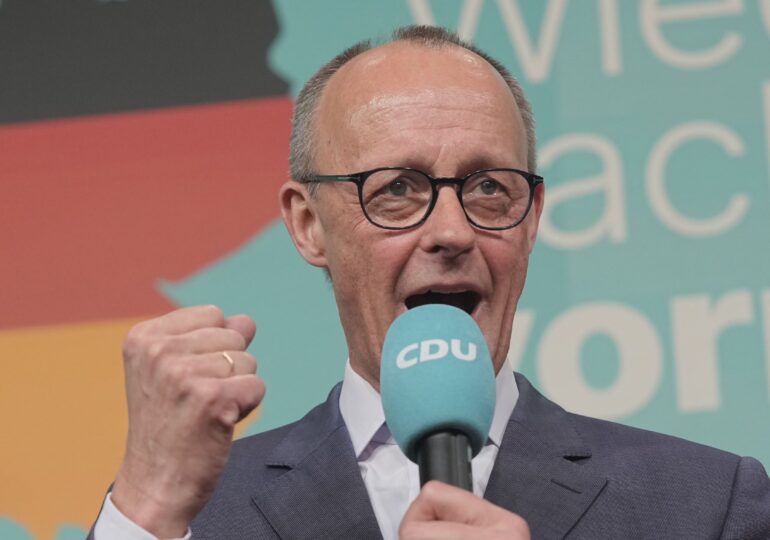German Chancellor Friedrich Merz criticizes the European Union and announces, in the traditional summer briefing of the Chancellery, that his main priority in this legislative term is to take Germany out of recession and strengthen Europe’s defense.
The German Chancellor emphasized his close relationship with Emmanuel Macron, Donald Tusk, and Kier Starmer, and the fact that he has cooperated intensively with his American partners to find solutions to President Donald Trump’s tariff policies and the situation in Israel and the Gaza Strip, as reported by Euronews.
”We want to try to help,” declared the German Chancellor regarding the humanitarian crisis in the Gaza Strip and announced that Berlin is making efforts to find a way to send humanitarian aid to the war-torn enclave.
He emphasized that Israel cannot be compared to Russia, that the two countries are "fundamentally different," and that Israel remains a democracy compared to Russia.
Criticism of the EU
Friedrich Merz criticized the European Union, which he describes as "too bureaucratic, too slow" in solving the problems of European citizens.
He emphasized that the immigration issue must be resolved.
Merz announced that Germany controls the Polish border and that Poland vigorously defends its border with Lithuania, accusing Russia and Belarus of sending migrants to Europe.
He showed diplomacy and refused to talk about Angela Merkel's migration policy from 2015.
Merz announced that Germany carried out 81 deportations to Afghanistan on Friday morning.
”The federal government does not recognize the de facto government of the Taliban,” he emphasized at this briefing and announced that it is unlikely that the federal government will change its position.
Priority Internal Reforms
Friedrich Merz announced, regarding internal issues, that reforms of mandatory health insurance and long-term care are necessary, and in this regard, the government must take measures in favor of job creation.
Friedrich Merz's statements on Friday mark a change in tone from the previous government, as the Chancellor tries to find a balance between socialist and conservative ideas in the coalition supporting him in power.
Germany is making efforts to increase its domestic production and become more competitive in the international market, which is set to define the German Chancellor's roadmap for the next three years.

